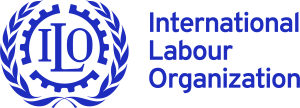Maternity income protection in Southern and Eastern Africa From concept to practice
When maternity social insurance legislation was passed in Rwanda, the Executive Secretary of Pro-Femmes TweseHamwe, an umbrella of civil society organizations, Emma Bugingo said: “The Fund will help mothers to take a longer rest and to take care of their newly born babies”. Pregnancy and childbirth can be a vulnerable time for women, particularly those with low incomes or no incomes at all. Indeed, a study in South Africa showed that pregnancy in poor areas is associated with increased anxiety and mental health problems, and is correlated with food insecurity and domestic violence (van Heyningen et al. 2016).
Female workers who are not entitled to paid maternity leave often have to interrupt or reduce their participation in paid work in order to bear and rear a child. This often translates into increased economic vulnerability in a time of increased households expenditures related to pregnancy and birth. There are other risks too: they may continue to engage in economic activity too far into pregnancy, or they do not take an adequate rest period and start working too soon after childbirth with negative effects on both their own and their children’s health. Maternity income protection increases economic security in the household. It is also associated with positive health outcomes for women and their children, including the establishment and maintenance of breastfeeding, as well as greater emotional and psychological wellbeing. This contributes to a general feeling of greater security, stability and ability to plan for the future.



